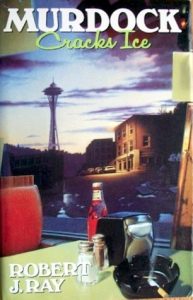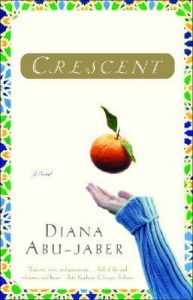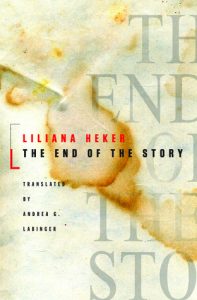I needed AWP this year. I don’t think I knew how much until I was on my way to the airport to pick up my conference buddy, Liza and nearly started crying. It’s been a wonderful year of getting books accepted and working my ass off to get them in shape, but I haven’t been writing which means I haven’t felt much like a writer. AWP was a chance to commune with my people and to find that writer part of me, not just the marketer part of me. Here are my memories for AWP and a little advice for anyone who’s going to AWP in Minneapolis in 2015.
Readings
I was so glad to be invited to do a reading this year. It gave me a chance to gather with old friends and new. I got to engage with an audience and my work again. It even made me work up the balls to ask Ravenna Third Place to sell my book on consignment (because if you have a book, you should be selling that book). If you look around at your writing community and no one is setting up a reading, set one up yourself. My friend Ann did that at AWP Chicago and not only did she find a new audience, but she made new connections to boot.
Connecting with Friends
I have no idea what I did before I had a cell phone, because one of the highlights of the conference was the IMs I’d get from friends during this panel or that saying where they were headed next or where and when we’d meet for dinner. I know I missed people and of course I wanted more time than I had, but it was fantastic.
Leading a Panel
I also suggest you pitch a panel if you have any kind of expertise at all. In some ways it’s better and more interesting if that expertise is only tangentially related to writing. Figure out what sets you apart, then find some other writers who can add to the discussion. People are flattered to be asked.
I pulled together a panel entitled “Four Ways Blogging Benefits a Writer” with Rebecca Bridge, Ann Hedreen, Jack Remick, and Elissa Washuta. We tried to make it as conversational as possible (I hate the panels where people get up and read their essay on _____ for 15 minutes before passing the mic to the next droning essayist who also can’t make eye contact with the audience). I ended up being really grateful that our panel was the first panel of the first day. Our room filled up really early and by the time we got going, there was a crowd out in the hall. For the rest of the conference, people were coming up to all of us and telling us that it was the best blogging panel they’d seen at AWP.
The whole experience made me feel really confident and happy to be there. I had something to offer people and I was glad to share.
Connecting Your Work Life and Your Writing Life
If you have a day job like so many of us do, AWP is your chance to connect who you are in your day and night jobs. I work in Internet marketing, which means it wasn’t a stretch to build a panel around a writer’s biggest marketing tool. It was a good opportunity to put my and my company’s expertise in front of people and to expose us to a new market. It also meant that they paid for my conference fees and the time I was there. The fact that writing craft is an essential part of what I do on a day-to-day basis just made that argument easier because I learned a lot from the panels and connected with a couple of potential freelancers. I loved integrating my two selves.
Marketing for Publishers
I actually wrote an entire post on this for work, but the things I learned about marketing just by wandering the book fair were myriad and fascinating. Maybe that marketing self is more integrated than I thought…
Don’t Choose a Panel Based on the Author
More than one really big name did not show up at the conference this year. I think that happens a lot. And then sometimes when the big name shows up, they don’t live up to your expectations. I was pretty lucky that most of the panels I went to were really good, and even the one I chose based on the headliner was great in her absence. Turns out there are lots of other writers who write on the same subjects and I got to learn about them as well.
Taking Care of Yourself
AWP is happy writer fun time. From all-day panels to nighttime readings and then all night parties (I mostly skipped these), it’s easy to wear yourself out. A friend had offered me keys to her apartment near the Convention Center so I could take a nap. I wish I’d taken her up on it. I also wish I’d run home really quickly to drop off the full tote bag of books I bought early on Saturday. But I survived and haven’t even gotten sick yet. I may have fallen asleep during one conversation yesterday–my husband has been too nice to say whether that was true.
The day the writers all left, it started pouring in Seattle. But I’m not crying. I feel full and happy to move forward. There’s a lot of marketing in my future, and (I hope) some writing. However that balance shakes out, I’m really grateful that I was able to be part of AWP this year.
How do you reconnect with your writer self? Or am I the only one who loses that connection occasionally? I’d love to hear your stories in the comments.
 It’s been a busy few months. While I was finalizing
It’s been a busy few months. While I was finalizing  I avoided reading Crescent by Diana Abu-Jaber for almost a year. It looked too thick for my purse or the back matter was too fluffy for my mood. When I finally picked up the book, I realized what I’d been missing all this time. And although I lost myself in the story of Sirine and Han so much that I barely annotated the book, it was impossible to ignore how well-crafted this novel is.
I avoided reading Crescent by Diana Abu-Jaber for almost a year. It looked too thick for my purse or the back matter was too fluffy for my mood. When I finally picked up the book, I realized what I’d been missing all this time. And although I lost myself in the story of Sirine and Han so much that I barely annotated the book, it was impossible to ignore how well-crafted this novel is. Some books are so important that if you care at all about understanding the history of a place, you have to read them. The End of the Story by Liliana Heker is one of those books. And although the book is gorgeously written, it is not an easy read. If you’re interested in Latin America or stories of how people rise up against tyranny, read it anyway–it’s worth it.
Some books are so important that if you care at all about understanding the history of a place, you have to read them. The End of the Story by Liliana Heker is one of those books. And although the book is gorgeously written, it is not an easy read. If you’re interested in Latin America or stories of how people rise up against tyranny, read it anyway–it’s worth it.